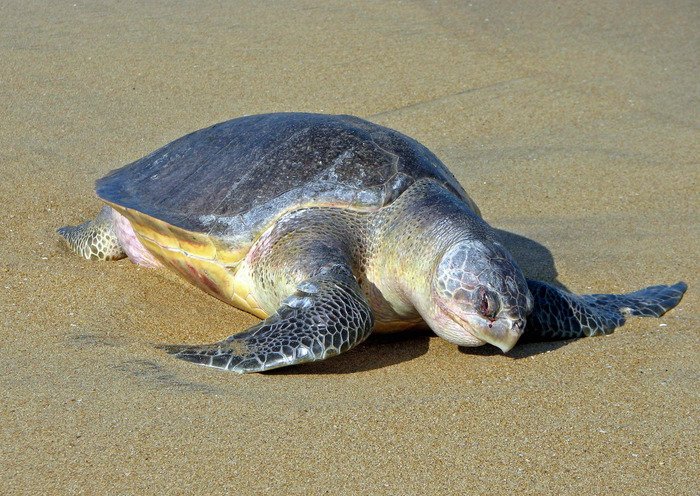Olive ridley sea turtle. Credit: Bernard Gagnon, Wikipedia, Creative Commons
ADELAIDE, Australia, Oct. 29 (UPI) -- DNA studies of endangered sea turtles point to loss of genetic diversity caused by recent human exploitation, Australian scientists say.
Researchers at Flinders University in Adelaide say their study demonstrates the significant consequences human over-exploitation can have on marine life.
The work used DNA samples from 334 turtles collected across 18 nesting sites along 1,800 miles of Mexico's Pacific coast.
Between 1960 and 1990, more than 2 million olive ridley turtles --as many as 350,000 in 1968 alone -- and their eggs were commercially harvested along the coast of Mexico, the researchers said.
"We not only found signal associated with recent loss of genetic diversity but two other interesting results: first, the intensive exploitation of a few nesting sites caused a reduction in genetic diversity in olive ridley turtles along the entire coastal region," Flinders doctoral student Jimena Rodriguez-Zarate said.
"Second, the harvesting of individuals and nests had led to a change in the behavior of nesting females who no longer nest in synchronized and massive mode with other females," she said. "Instead, they now seek a solitary nest."
Although olive ridley turtle numbers are recovering since the introduction in 1990 of a prohibition on harvesting, the study findings have important implications for marine conservation policy, the researchers said.
"The results serve as a guide to where to set up marine reserves, for instance," ecologist Luciano Beheregaray said.
"Genetic diversity is fundamental for the persistence of species. Keeping species with high levels of genetic diversity is what is needed to ensure long-term maintenance of biodiversity," he said.















